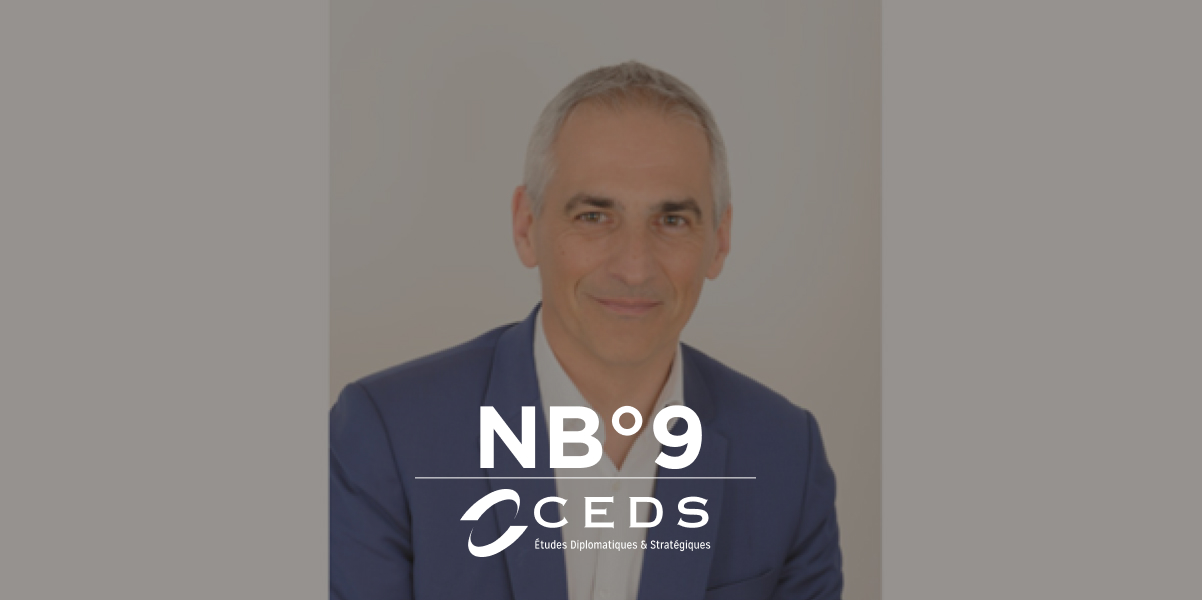Florence Gabay, Director of Development, presents her interview with Mr. Jean-Luc FUGIT, President of the National Air Council, on the theme of “air quality and COVID-19”.

Since March 16, France is in a period of confinement. While many are experiencing difficulties in the face of this unprecedented health situation, the planet thanks us. Indeed, a large number of indicators show that the decrease in activity of the French population leads to improvements in terms of pollution but also in terms of outdoor air quality.
To answer this question that everyone is asking the CEDS has chosen to interview Mr. Jean-Luc Fugit, MP for the Rhone since June 2017 and President of the National Air Council since July 2018. This man has multiple experiences in the field of sustainable development and environment, since he was notably Member and Secretary of the Permanent Commission on Sustainable Development and Land Use at the National Assembly, Member of the National Council for Ecological Transition and Co-Chairman of the study group on Health-Environment of the National Assembly.
In this interview he highlights the effects of COVID-19 and containment on air quality in France.
1) Since March 16, France is in a lockdown period, what is the impact on outdoor air pollution?
Measurements carried out since the beginning of the containment by INERIS and the Associations Agréées de Surveillance de la Qualité de l’Air (AASQA) show, in the largest cities in France, a decrease of about 50% on average of the concentrations of nitrogen oxides, two thirds of which are emitted in “normal times” by fossil fuel road transport (diesel and gasoline). As for the concentrations of fine particles monitored during this period of confinement, the measurements carried out do not allow to highlight an improvement of the air quality for this pollutant. In “normal times”, road traffic is responsible for about 20% of the emissions of fine particles in the outdoor air; naturally these emissions are decreasing with the current reduction of road traffic, but for the other main sources of emissions (non-efficient wood heating, agriculture, industry, …) of these particles, slight increases have been observed over this period.
2) Can you tell us about the interactions between air pollution and COVID-19?
At this stage of the state of knowledge, it is necessary to distinguish between the two questions that arise:
- What impact does air pollution have on COVID-19 resistance?
The health impact of local air pollution (nitrogen oxides, fine particles, ozone…) has been proven for many years and more generally in densely populated areas. Chronic exposure to air pollution can, among other things, weaken the respiratory system and thus facilitate the onset of pathologies. It is therefore reasonable to think that a correlation can be demonstrated between air pollution and a weakening of the respiratory system to COVID-19.
- What impact does air pollution have on the spread of COVID-19?
At this stage, no causal link has been demonstrated between air pollution (especially that due to fine particles) and the spread of the virus, as underlined by recent publications from scientific organizations: contributions from Italian aerosol specialists, Japanese infectious disease specialists, the French High Council for Public Health, etc. Further work, including inter-comparisons between results from several research teams, is therefore necessary to further investigate this question. The pursuit of this research therefore requires time and a great deal of scientific rigor, including in the media presentation that will be made.
Jean-Luc Fugit’s biography
Political mandate
- Elected deputy of the Rhône (11th district both urban and rural) on June 18, 2017 – Member of the LaREM group of the National Assembly
- Member and Secretary of the Standing Committee on Sustainable Development and Regional Planning of the National Assembly
- President of the National Air Council since July 2018
- Member of the OPECST (Parliamentary Office for the Evaluation of Scientific and Technological Choices)
- Member of the National Council for Ecological Transition
- Co-Chairman of the Health-Environment study group of the National Assembly
- Co-reporter of the joint parliamentary information mission on the follow-up of the glyphosate exit strategy
- Rapporteur of the Mobility Orientation Law Title III “Developing cleaner and more active mobility
- Vice-Chairman of the “Hydrogen” study group of the National Assembly
- Member of the Information Mission on endocrine disruptors in plastic containers
- Member of the information mission on the fire at the LUBRIZOL industrial site in Rouen
- Co-rapporteur of the OPECST study on energy production in the agricultural sector
- Rapporteur OPECST on Space topics (from launchers to satellite applications)
- Member of the Commission of Inquiry on industrial food: nutritional quality, role in the emergence of chronic pathologies, social and environmental impact of its origin
- Ambassador France Mobilités
- Member of the France/Portugal and France/New Zealand friendship groups
Training and career path
- Doctor in air pollution (INP Toulouse), chemical engineer of ENSIACET (Toulouse)
- Lecturer in Chemistry (COMUE of Lyon – Saint-Etienne) Available since September 2017.
- Vice President of the University in charge of professional insertion, orientation and student success (from 2011 to 2017)


